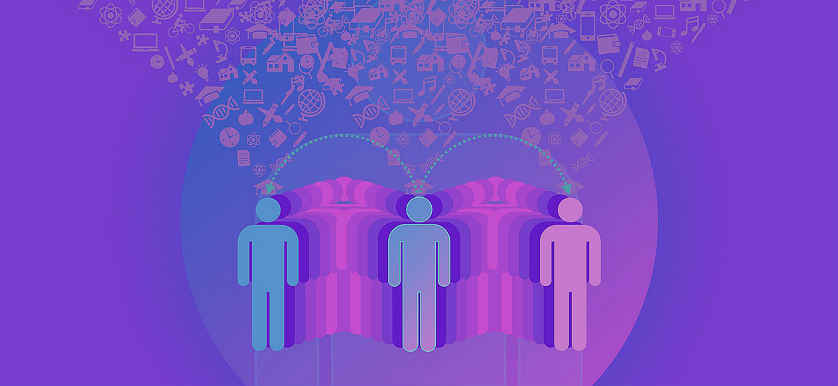How Can You Tell If You Have High Emotional Intelligence? – Part II

emotional inteligence
In Part I of our article, we discussed what exactly is Emotional Intelligence or EI/EQ and what are some of the top 5 characteristics that individuals with high EQ have. In our second part, we will look at what are the markers that showcase whether one has a high EQ level or not.
There are various tests that can help you identify your emotional intelligence level, such as the Emotional Intelligence 2.0 test. However, these tests have their limitations in that EQ is intangible, making it difficult to precisely measure.
There are certain ways to estimate your overall emotional intelligence that don’t involve taking a test (most of which aren’t free). There are a number of markers that accompany those with high emotional intelligence, such as the following:
A Curiosity About People
Curiosity comes from empathy, which is one of the most significant elements of EQ. If you are curious about people, you will also care about what they feel and how they struggle.
On the flip side, those with a low EQ don’t have any interest in others. They aren’t interested in what others think or feel. Their primary focus is on themselves.
A Thorough Emotional Vocabulary
Remember, EQ is the ability to identify and understand emotions. Research conducted by Travis Bradberry, who is the author of “Emotional Intelligence 2.0“, suggests that only about 36% of people have this ability.
This is partially due to an inadequate emotional vocabulary that prevents people from properly identifying what they’re feeling. Every negative feeling is simply called, “Bad,” and every positive feeling is, “Good.”
However, those with high EQ can specifically name their emotions, which then allows them to deal with them in the most effective way.

emotional inteligence 2
A Holistic Understanding Of Themselves
If you have high emotional intelligence, you have a holistic understanding of yourself that goes beyond just feelings. You know what you’re good at and what you’re not. You know the people and situations that frustrate you. You also understand how to avoid or effectively navigate situations that will hurt you emotionally.
If you have a high EQ, you can tap into your strengths and minimize your weaknesses.
Not Easily Offended
Emotional intelligence involves a thorough knowledge of yourself and the ability to control your emotions. Combined, this makes for strong character development. You are confident in who you are and are able to understand when someone is simply making a joke versus when they are degrading you. You don’t let people easily get under your skin.
An Ability To Judge Character
EQ gives you the ability to read and understand people. You are in tune with their emotions, which then allows you to more readily understand their actions. You can tell the difference between someone having a bad day and someone who is a bad apple. The more you develop your EQ, the more skilled you become at making character assessments about people.
Not Haunted By The Past
A low EQ makes it difficult to manage emotions when they appear unexpectedly. When a past mistake comes to mind, it’s easy to get dragged down into discouragement and despair.
If you have a high EQ, you are able to think about past mistakes without letting the associated emotions overwhelm you. You can process the past in a way that is appropriate—not forgetting but not dwelling. You are able to learn from your mistakes and prepare for the future.

eq
Giving Without Expecting
Those with a high EQ are able to give without expecting anything back. Because you are constantly in tune with the emotions of others, you know the effect that a gift will have on someone. When someone needs something, you want to meet that need.
This giving attitude allows emotionally strong people to build deep relationships with other people.
An Ability To Handle Toxic People
Toxic, difficult people will often draw a reaction out of you. You feel surges of negative emotions when you are around them and often lash out, which then hurts both you and them. Lashing out also fuels their toxic behavior even more.
If you have a high EQ, however, you can keep your emotions in check when dealing with a difficult person. You don’t allow your anger to boil over. You’re able to see multiple perspectives. While most people are quickly flustered by toxic people, you can handle them calmly.
There are numerous other markers of high EQ, but this should serve as an effective baseline to help you determine where you stand.
Conclusion
Emotional intelligence is absolutely essential. Your intelligence can only get you so far, especially in this day and age where everyone has almost equal access to information.
If your emotional abilities aren’t in hand, if you don’t have self-awareness, if you are not able to manage your distressing emotions, if you can’t have empathy and have effective relationships, then no matter how smart you are, you are not going to get very far.
Being closely in tune with the emotions of others allows you to interact with them in ways that create positive outcomes, both for you and them.
This article was originally published here and has been republished with permission from cornerstone.edu.
Image sources:

Tags: Emotional Intelligence




